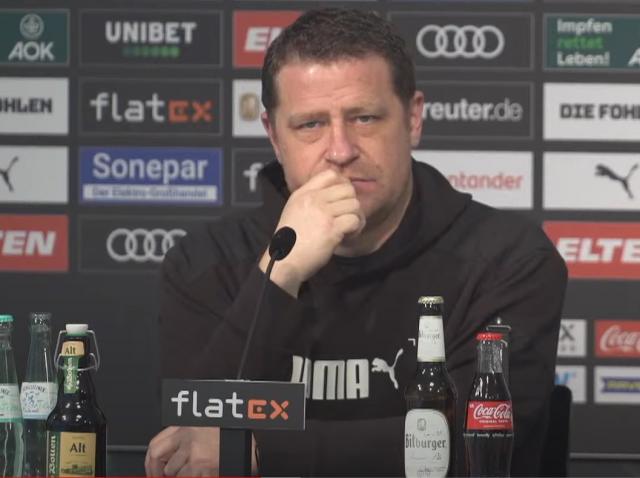Eberl defends himself against fan criticism: "In the end, you only have to answer to yourself."
In an interview with Germany's "die Welt" newspaper, future RB Leipzig sporting director Max Eberl struck out against his former club and its fans for not understanding the mental health crisis leading to his resignation last January.

| Max Eberl. |
In a recent interview with German national newspaper "die Welt", Eberl spoke of his road back from his near breakdown. The future RB Leipzig sporting director spoke of travels abroad, seeking pout professional help, allowing the tears to flow, and the practice of personal journaling; a helpful exercise he continues to this day. Eberl revealed that the feeling of getting back to work returned to him late this summer.
"In August, I felt like football was firing me up again," Eberl divulged, "strength and energy were coming back. I simply feel like working for Leipzig."
The former BMG boss has naturally had to deal with a lot of blowback after his decision to reinsert himself into the footballing landscape. One of Gladbach's most vocal supporters' groups channeled the hurt of watching their longtime club figure move to a non-50+1 club into an open letter accusing Eberl of exaggerating the extent of his mental-health crisis.
Eberl voiced his disappointment both with the Fan Project with regard to the accusations and at Gladbach itself for not immediately condemning the letter. In the view of the long-time club administrator, those courageous enough to lay their issues out honestly shouldn't be subject to such treatment.
"For me, it's a problem that someone who was psychologically stricken and ill spoke out and wasn't believed," Eberl said, "Then I'm accused of lying and histrionic and that the club doesn't repudiate something like that. I'm very disappointed that people I worked with almost every day for 23 years don't believe me. I can't understand that."
Eberl ultimately had to make his peace with the views of others and what he experienced personally. The future RB boss acknowledged his hurt, but emphasized that he knew at the time that he could no longer function and, thus, could no longer serve the club he held so dearly in the manner in which it needed to be served.
"No one can take away from me what I achieved there and what we achieved together," Eberl said of his former club. I can look everyone in the eye there. Whether they can do the same, I don't know. Some really didn't understand what it was all about, how I was doing."
Eberl concluded by girding himself up for what was to come. The animosity towards him will not simply disappear. The devotion of German football's "everyman" fan scene remains centered on the "everyman's" struggles can only hold so much sympathy for well-compensated footballing executives, even if such struggles are in essence one-and-the-same.
Eberl declared himself fully prepared to get back to work anyway.
"In the end, there's really only one person you have to answer to," he noted, "and that's yourself."
